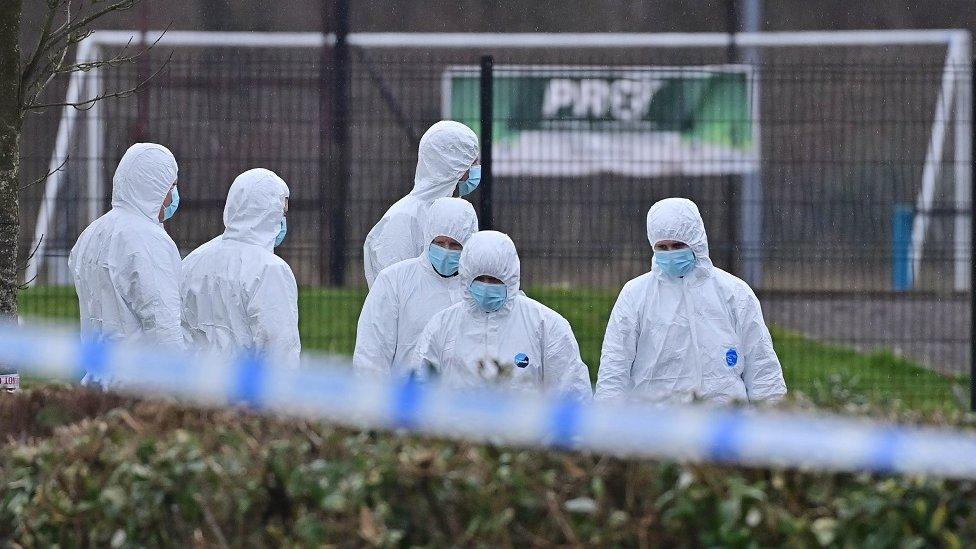Joe Biden defiant on NI visit after terrorism threat level raised
- Published
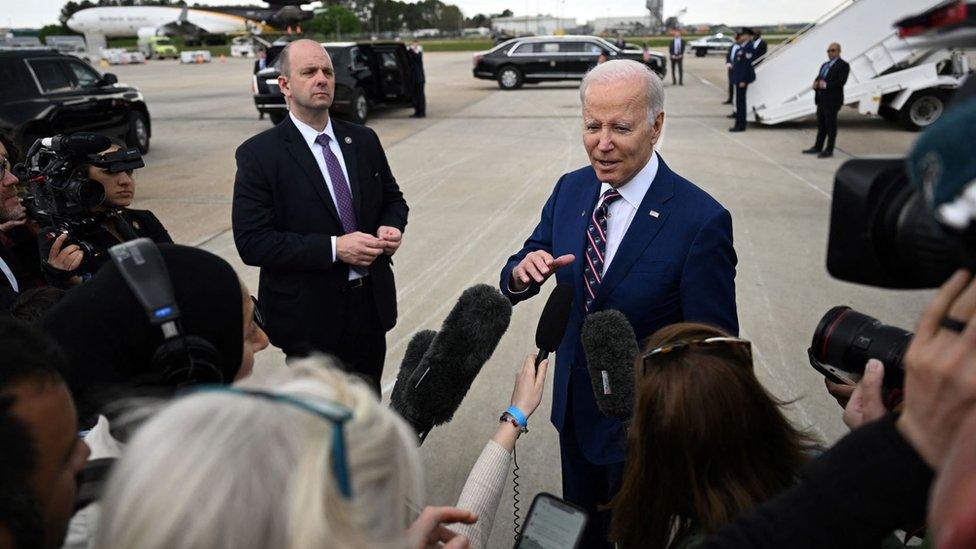
President Biden told reporters "they can't keep me out"
US President Joe Biden has said he still plans to visit Northern Ireland despite MI5's decision to increase the terrorism threat level to "severe".
The move follows a rise in dissident republican activity, including a recent gun attack on a top police officer.
Mr Biden was asked by reporters on Tuesday if it would affect his upcoming visit to mark the 25th anniversary of the Good Friday Agreement.
"No. They can't keep me out," he said.
President Biden has been a vocal supporter of the peace deal signed on 10 April 1998, which was designed to bring an end to three decades of conflict in Northern Ireland.
Following a meeting with UK Prime Minister Rishi Sunak in March, Mr Biden said he intended to visit both Northern Ireland and the Republic of Ireland as part of the anniversary celebrations.
Full details of Mr Biden's visit are yet to be confirmed, but the White House has said the increased threat level "does not have any potential implications for future travel".
Former US President Bill Clinton, ex-British Prime Minister Tony Blair and former Taoiseach (Irish PM) Bertie Ahern are among those expected to visit Northern Ireland for commemorative events.
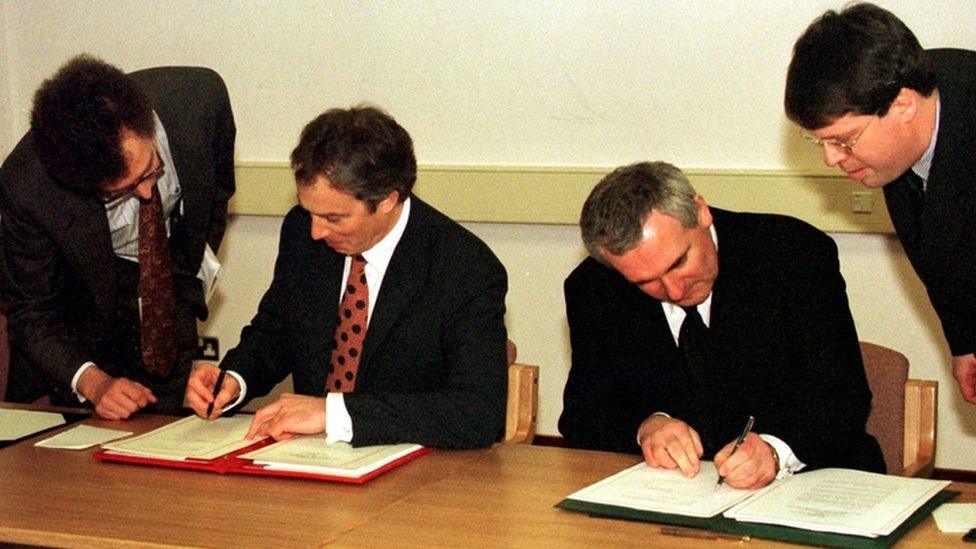
Former PM, Tony Blair, and then taoiseach (Irish Prime Minister) Bertie Ahern are also due to visit
MI5, rather than the PSNI or the government, is responsible for setting the Northern Ireland terrorism threat level, which it has been publishing since 2010.
The move reverses a downgrade in Northern Ireland's terror threat level last March - its first change for 12 years.
On Wednesday, Deputy Prime Minister Dominic Raab said the rise in the threat level was "disappointing".
However, Mr Raab said it is worth nothing that the number of dissident republican attacks has been in significant decline since its peak in 2009 and 2010.
He was responding to a question from DUP leader Sir Jeffrey Donaldson who asked for assurance the government would provide the PSNI and the security services with the resources they need to counter the threat.
MI5, the UK's Security Service, is believed to review the threat level every six months.
The terrorism threat level remains substantial in the rest of the UK, external, meaning an attack is a strong possibility.
Vigilance urged
In a written statement to MPs, Mr Heaton-Harris said: "The public should remain vigilant, but not be alarmed, and continue to report any concerns they have to the Police Service of Northern Ireland (PSNI)."
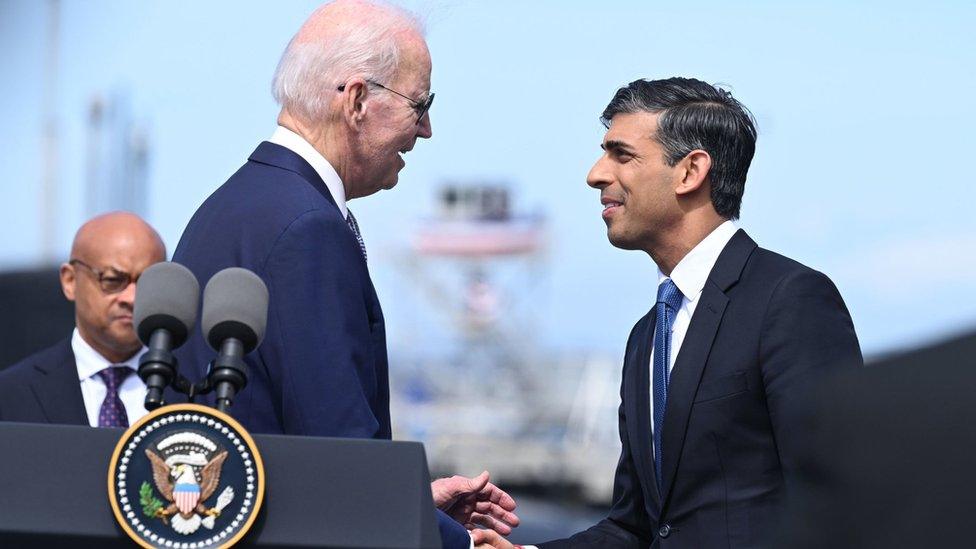
Prime Minister Rishi Sunak met with Joe Biden in California earlier this month and invited him to Northern Ireland for Good Friday Agreement anniversary events
Deputy Chief Constable Mark Hamilton said dissident republicans were focused on attacking police officers, not the public.
"You should be worried for your police service," he said.
"I wouldn't encourage people to be hugely concerned about their own safety broader than that."
In February Det Ch Insp John Caldwell was shot several times by two gunmen as he was putting footballs into his car boot having been coaching a youth training session in Omagh.
On Tuesday, police said the 48-year-old father-of-one had been moved out of intensive care for the first time but remained in a serious condition.
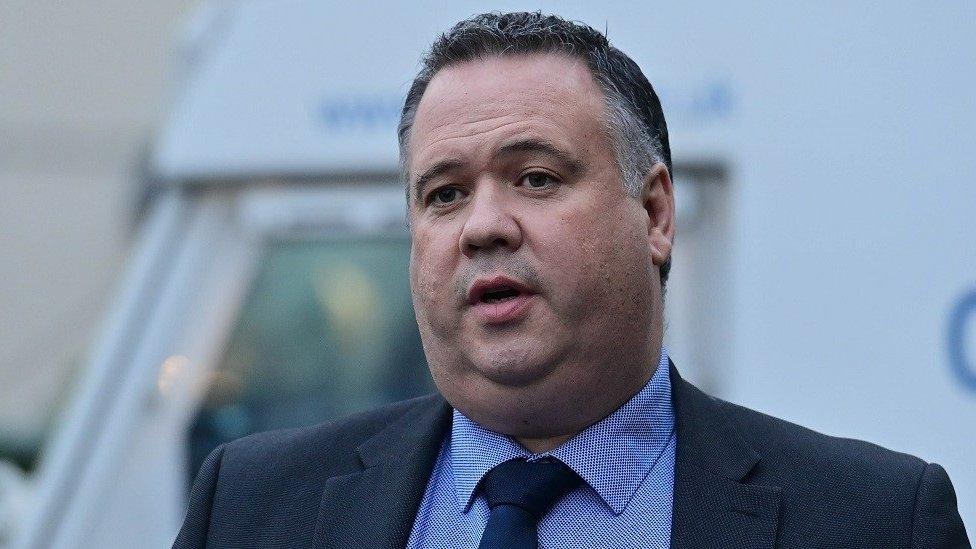
Det Ch Insp John Caldwell was moved out of intensive care for the first time on Tuesday but remains in a serious condition
The attack on him was admitted by the New IRA, the biggest and most active group dissident group, whose main areas of operations are in Londonderry and County Tyrone.
The group was formed in 2012 and previous security assessments estimated it had about 500 supporters, some 100 of whom are prepared to commit acts of terrorism.
Although tensions within loyalist groups have led to attacks in parts of County Down in the past few days, the change to the threat level is not related to this flare up.
Several loyalist paramilitary groups - the largest being the Ulster Volunteer Force and the Ulster Defence Association - are active in Northern Ireland but are not considered a threat to national security and therefore are not a factor in MI5's assessment.
Related topics
- Published14 March 2023
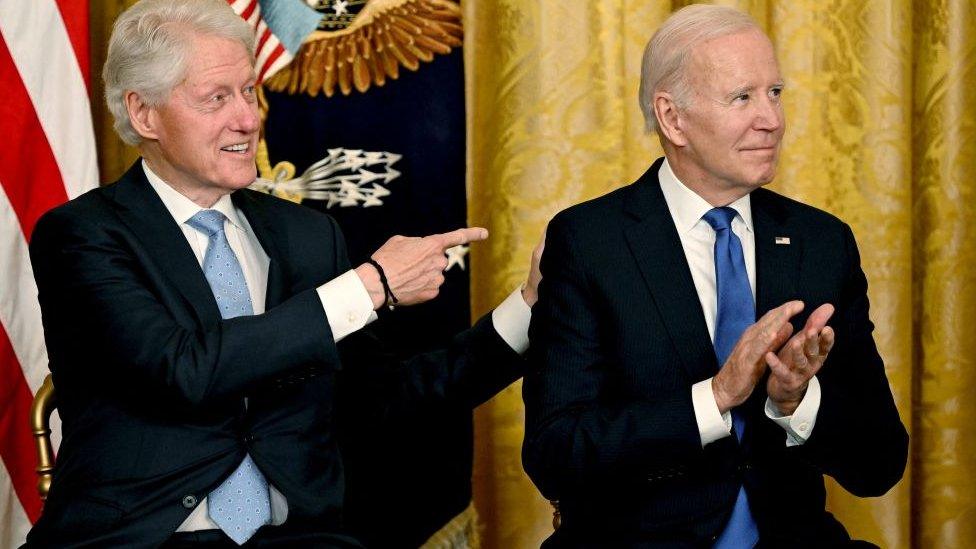
- Published28 March 2023
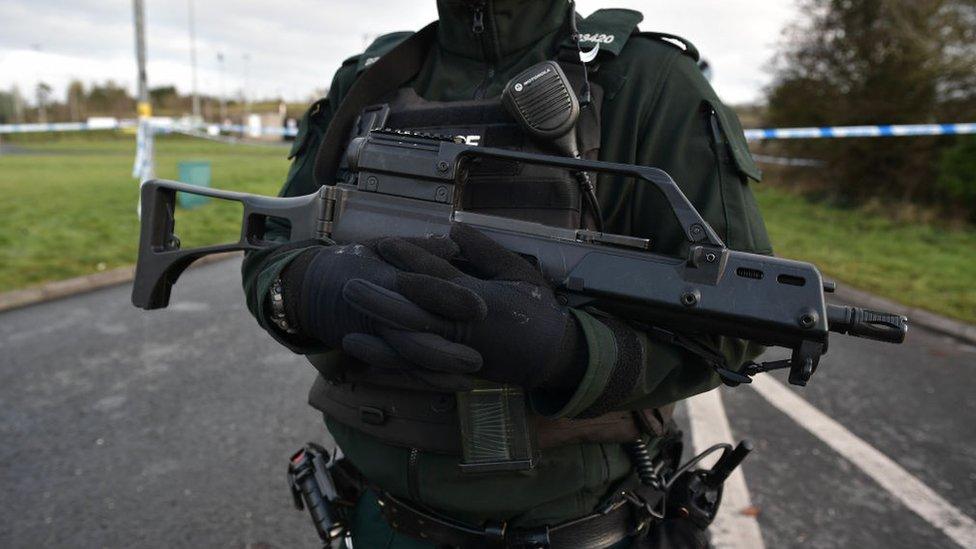
- Published14 August 2023
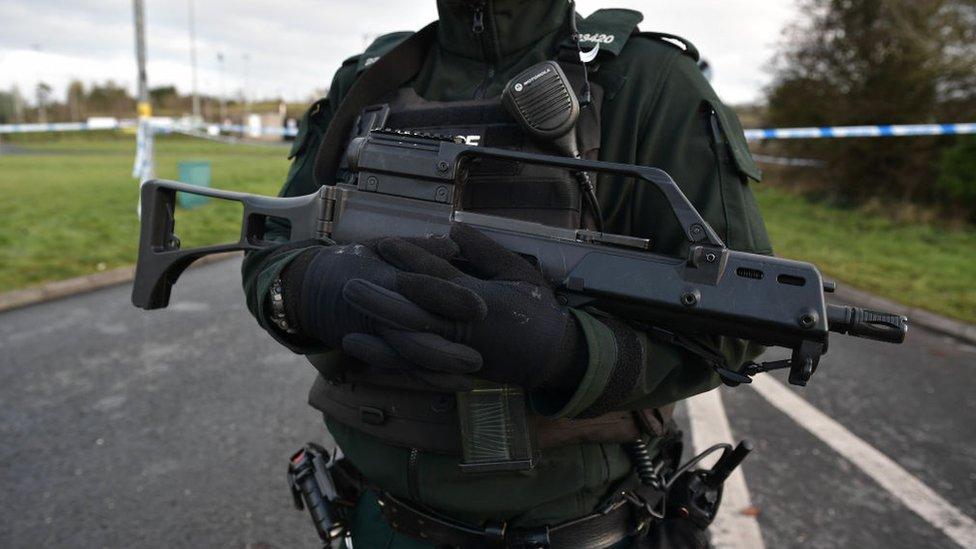
- Published14 August 2023
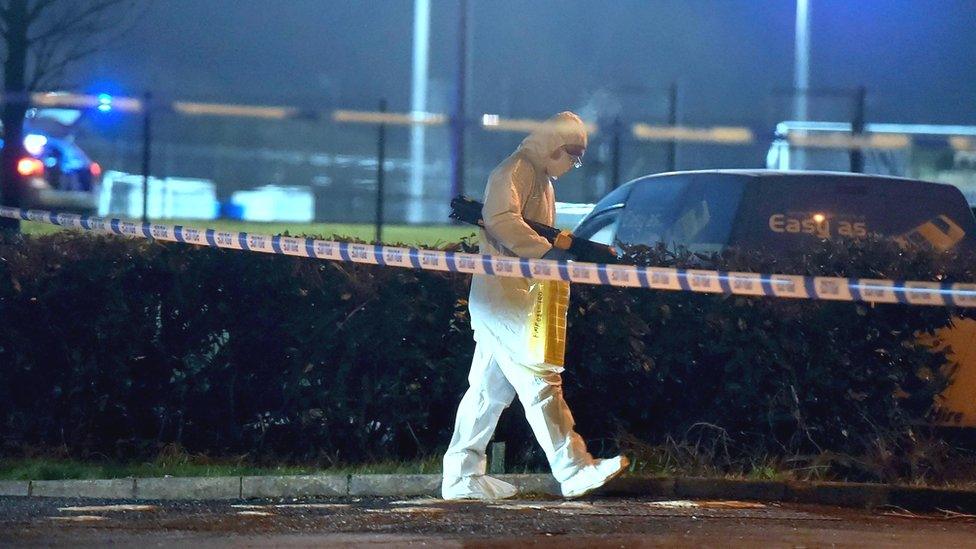
- Published24 February 2023
